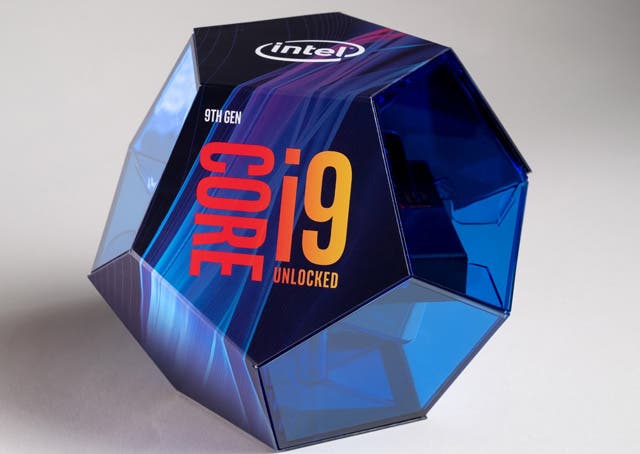Intel Core i9 9900K: the Digital Foundry verdict
Stunning hardware - but too expensive.
Intel's Core i9 9900K is easily the fastest CPU intended for a mainstream PC platform, but there's a catch: its price. In the UK, Intel is asking for a mammoth £600 for the processor - effectively a 33 per cent price hike over the Core i7 8700K in exchange for 33 per cent more cores and threads. However, even in the most extreme cases we could muster, the overall net benefit for gaming is more in the 10 to 11 per cent range. Put simply, the value isn't there, especially when simply engaging the enhanced turbo on a Z370/Z390 board tends to claw back most of those percentage points and gives an equivalent experience.
Yes, overclocking is possible, but gains are limited. I'm not especially keen on putting anything higher than 1.3v through a Coffee Lake chip, so on the sample I was given from Intel for this review, that gave me a locked 5.0GHz on all cores - but it really needs to be paired with a high-end cooling solution, which you don't get included in your £600 purchase. A 'mainstream' eight-core/16 thread CPU is a beautiful thing though, and to see all of those cores hitting and sustaining 5.0GHz is a wonderful sight - but really, your use-case scenario to justify such a processor has to cover both heavy gaming and high-end productivity to get the value from this premium-priced offering.
If you're looking for an out-and-out, ultra-fast games machine, the Core i7 8700K would still be my choice - though its eight-core/eight-thread successor, the i7 9700K, may prove a worthy replacement (Intel did not send one for review). And in fact, if productivity is more your focus, the pricing on the i9 9900K is so high that a little over a £100 more gets you a Threadripper 1950X with twice the cores and threads - though memory costs will be higher. Intel's pricing puts the 9900K into an uncomfortable space then - and generally speaking, there's the sense that all the eighth-gen and ninth-gen i7s and i9s are around £100 more expensive than they should be.

Competition-wise, that leaves the Ryzen 7 2700X. It's palpably slower than Intel's six and eight core champions, but it clearly still has much to offer - it's half the price of the 9900K for the same number of cores and comes with a perfectly adequate cooling solution in the box. On top of that, build costs decrease further as you don't need an expensive board to extract maximum performance from the silicon. It's an exceptional all-in-one offering that's well worth checking out - just be aware that today's most challenging games at their highest settings (and even a bunch of older titles) will sometimes slip beneath that 60fps threshold, where Intel alternatives - i5, i7 or i9 - are less likely to buckle.
On the face of it, the Core i9 9900K looks like an expensive luxury then - the Titan of gaming CPUs, if you like. Theoretically it's the best product money can buy in its category, but the diminishing returns offered in actual gaming performance are an issue. However, in its defence, processor technology needs to evolve and with next-gen consoles likely to offer a tremendous leap in CPU power, PC needs to keep pace with innovations of its own even if utilisation is limited in the short term. With that in mind, the Core i9 9900K may not be the CPU that we need now, but given a couple of years, it may well be the trailblazer that sets the stage for PC performance to remain one step ahead of the next-gen consoles.
There's also the fact that the existence of an eight-core processor extends the life of a system you build today based on Intel's current platform. You may not need an i7 or i9 today, but it's there as a drop-in replacement when you do need it. For example, owners of Intel's classic second-gen Core processors - the i5 2500K being the prime example - rarely saw much benefit from upgrading to an i7 back in the day. However, as we've demonstrated, a latter-day upgrade to an i7 3770K adds a lot of performance that helps extent the life of the platform. I can fully expect the same thing happening in the years to come with the Core i9 9900K if you're happy today with your current i5.
In the here and now, the Core i9 9900K is indeed a proper halo product from Intel - astonishingly fast, highly capable and the most future-proof mainstream CPU on the market. The value proposition is questionable, but for those that want the best of the best from mainstream hardware, it's a stunning product.
Intel Core i9 9900K analysis








